Of bonds and places, of socio-cultural nodes and LGBTQ+ issues, as well as perspectives that help open or shut horizons: this is a part of what the movie Aichaku tells about, as a Japanese feature film available on streaming on Prime Video and on GagaOOlala in various countries starting from April 2025, finally arriving also in Italy since the month of July 2025.
It seems seriously complicated to open up the various facets of a movie that underlies an international -or rather a 'foreign'- view, of someone belonging also to a sexual minority.
The meeting of AnimeClick with the producer, screenwriter and leading actor Christopher McCombs led to the opportunity to conduct a multi-interview with several cast members and the movie technical crew and staff. A chance for which we are not only extremely grateful, but which we believe allows us all to raise one by one the many peculiar layers this movie is made up of, focusing the gaze also on tricky issues and opportunities for the future of a Japan still strongly in need of dialogues, of encounters and clashes, of growth and openness.
To the Italian version of the whole article: please click HERE.
Short review
The first connection we make after we are born is the one with our mother.
(Raito Nishizaka, director)
The Japanese word aichaku expresses precisely the attachment one feels towards things, places or people; so, it is no coincidence that it was chosen as the title for a movie that talks about emotional bonds and the importance they have throughout our lives. Set in a small town in the Chiba countryside, Aichaku talks about several kinds of love: the love between Lucas and Ken, an American expat who teaches in a small English language school, and a Japanese man of mixed origins who still doesn't know which direction his life should take; Lucas’ love for Japan and also for an old abandoned bar; the deep bonds they both have with their own family members.
It is a movie about relationships, about desires and life choices, about what it means to live as foreigners in a country that is not always capable of being welcoming, but to which we somehow feel we belong.
The two main themes that the author (Christopher McCombs) and both directors repeatedly stressed are precisely the same-sex love and the attachment to the country where one has chosen to live; themes that were developed with an international audience in mind. For this reason, the linguistic aspect is paramount and it is treated in an interesting and surprising way. The soundtrack also plays a fundamental role: the songs were written specifically for the movie and they contribute to tell what is happening on screen.
Every aspect is taken care of down to the smallest detail, from the flawless acting to the amazing cinematography. The main cast’s performances are all excellent and each character is crucial for the development of the story. Among the secondary roles we can find a few small gems as well.
The main characters are two very different individuals, but the chemistry that develops between them is so intense that it draws the viewer inside their emotional universe.
Lucas is a kind and sensitive young man (to whom McCombs’ sweet voice suits perfectly), but at the same time he is determined and very clear about what he wants to achieve. Ken, apparently more masculine both in his appearance and personality, is in reality very fragile and he is going through a critical moment in his life that makes him feel repeatedly lost. The daily routine of the two men proceeds in parallel, until a chance encounter triggers an immediate connection between them. The relationship which develops within three days will lead both men to greater self-awareness and critical choices for the future.
Christopher McCombs, screenwriter, producer and performer in Aichaku, admits to having long missed LGBTQIA+-themed works with a happy ending and to having taken it into account when making a movie that represented these issues in Japan. Whether it has a happy ending or not, that is for the viewer to find out, but Aichaku certainly conveys many positive emotions, despite the presence of moments of anguish, conflict and discouragement that people feel when faced with the difficulties of everyday life.
It is a work at the same time fun and moving, that arouses interest about topics and places that are not familiar to everyone, and that leaves the viewer with a sense of hope in the possibilities of life and in the strength of bonds.
Animeclick: first of all, we feel extremely grateful to you for offering us the opportunity of this detailed interview.
Starting out with the first question, we can say that one of the main themes of the movie is the difficulty for a foreigner to build a life in Japan, both in terms of bureaucracy and in terms of the prejudices that one has to go through during daily life. As you stated in previous interviews, Boys' Love movies aren't known for conveying strong social messages; however, in Aichaku we find a good balance between the romantic atmosphere and the sense of frustration and isolation the protagonist experiences.
AC: how was this movie received by the Japanese audience? Is their attitude toward foreign people something they are aware of, and do you think the movie helped raise public awareness on this issue?
Christopher McCombs: I think in general the film was very well received in Japan. We had a very warm response from both the BL community and the LGBTQ+ mass media.
I went to the Tokyo Gay Pride festival this year with members of our cast and staff and was very touched by how many people came up to me and hugged me after saying that they had watched Aichaku. I’ve worked in television here for many years and people are often very polite but distant when they say hello. Perhaps it is because it was a movie that people react differently, but I believe it is because something in the movie moved them. I hope that is why.
In general, I think if you have not lived in another country it is difficult to understand what it is to be an outsider. It is very hard to understand the fragileness of a visa and as a result how unstable you feel if you’ve never had one before. I’m not sure how easy it would be to make anyone in the world more aware of what it is to be a foreigner, but that doesn’t mean we should give up on trying!
AC: would you like to kindly tell us what is director Raito Nishizaka’s and the Japanese cast members' view on the matter?
Christopher McCombs: we were very lucky on Aichaku to have two directors. Michael Williams is from England and very strongly related to Lucas’ visa issues and troubles based on his personal experiences here.
We were also lucky enough in the audition process to find Emika Kamieda and Yayoi Fujijwara who have both had experiences living as a foreigner in another country. It was very important to me while casting Lucas’ side of the story that we had cast members and staff that on some level could understand what the experience was like.
Beyond that, the members of our cast and staff who haven’t had the experience were very eager to ask what it felt like and to educate themselves about what it was to have a visa and live in Japan. I was very touched by the questions from Raito Nishizaka and Christopher Nishizawa while we rehearsed and shot the film.
AC: another important theme is homosexual love and its acceptance. The plan Marie devises, in order to simultaneously solve the visa problem and the need to live her sexuality freely, is very interesting: it seems to convey to the viewer the idea that sometimes it might be compulsory to devise stratagems in order to bend the strict rules of the world to our needs, at least until the world proves itself capable of changing for real.
Based on your experience, might a situation like this happen often in real life? Did you have the chance to collect testimony of people forced by external needs to make these kinds of choices?
Christopher McCombs: of course! I know several couples where one partner is a member of the LGBTQ+ family and the other is heterosexual or both are LGBTQ+ in the United States as well as in Japan. It is not so unusual even in 2025, especially without comprehensible and legitimate immigration options for international same sex couples ESPECIALLY in Japan.
To be honest, I was a bit taken aback by how unrealistic some of the reviewers found Marie and Lucas’ solution to their immigration struggles in Aichaku.
Having said that, if you don’t know anyone who has been put into that situation before, I could see how you might find it surprising that lavender marriages are still happening…Here is to a future where they are no longer necessary!
AC: Mr. McCombs, you have been living and working in Japan for 16 years already. Would you like to tell us how your love for this country was born and what it was like for you to integrate as a foreigner and a member of the LGBTQ+ community?
Christopher McCombs: in my case, my love affair with Japan began well after I arrived here, not necessarily before. When I was a child, my dad was very interested in technology and bought a Super Famicom years before the Super Nintendo was available in the states. I have very fond memories of my dad, my brother Matthew, and I sitting around and playing Final Fantasy V and Seikendensetsu 3 in Japanese with a Japanese dictionary in front of us trying to figure out what the characters meant. I really fell in love with the writing and the mystery behind kanji, hiragana, and katakana.
Once I started modeling in Las Vegas, I used the money that I was making to begin studying Japanese as a form of childhood wish fulfillment. At first I studied with a private tutor and then returned to college to study formally. After about a year of study I received an offer from a magazine that I had once modeled for to go to Tokyo as a reporter as they needed someone who could speak a little Japanese. After only a week here, I knew that I could work well in Tokyo and found representation. Not long after that, I moved here permanently.
I did not know much about Japan before arriving here, and in that sense my love for this country and culture was created organically over time.
It has been nice learning about Japan without bias. I feel like it has given me a clear picture of Japan, both the good and the bad. It also helped with some of the integration issues as I really knew nothing beyond some of the language and simply had to relearn everything like a child would.
As far as being a member of the LGBTQ+ community, I have been very open with my sexuality since my arrival here and was out on my first regular television job as a reporter on a live news show called “Go Ji Ni Muchuu.” I’ve run into a few casting issues and lost a job or two as a result, but that’s an article for another day.
AC: which was your target audience for Aichaku? Did you primarily think of members of the LGBTQ+ community, who are still underrepresented in movies, or did you have a broader audience in mind, aiming to raise awareness of these issues and normalize the portrayal of same-sex love?
Christopher McCombs: with all of our work at Tokyo Cowboys, we very much wanted as many people as possible to feel welcome to watch Aichaku. We wanted members of the LGBTQ+ family to feel like they had a seat at the table, but we also wanted the BL community to feel just as welcome as well as people who are interested in Japanese culture in general.
Additionally, we really hoped that we would reach other expats or people who are interested in what it is to live as a foreigner in another country. We had seen a lot of stories of immigrants having issues set in America, but we hadn’t heard of a story about an American trying to live in another country that was having issues with immigration.
AC: we have noticed that, in describing Aichaku, you define it at the same time as a “gay movie” and a “Boy's Love movie”. Especially with regard to Japanese works, the difference between these two terminologies is often emphasized, contrasting LGBTQ+ works (created by and for people belonging to this community) with BL / Yaoi works (often created by women for a female audience).
As also highlighted in the video review by Boys Love Folie, Aichaku seems to rightfully belong to the first category, but at the same time it achieves a good balance between the somewhat naive poetry of BL and the realism of an LGBTQ+ film.
Would you kindly tell us your opinion on this matter? Do you reckon the two genres are actually becoming closer, or do you think it is important to maintain this distinction?
Christopher McCombs: my interpretation of the differentiation between a “gay” movie and a “BL” movie is that one deals with social messaging and culture whereas the other is about fantasy and romanticism. To me, these things do not need to be separated. No one wants to swallow a bitter pill, and Aichaku tells some of the bitter parts of its tale with a sweet coating. Laughter and love often surround hardship in real life, and I think Lucas and Ken’s romance rings true in that it has the same sort of balance between the bitter and sweet.
Will there be some people dissatisfied on both sides of the equation? Yes. I don’t believe we were sexual or graphic enough for some fans of “gay cinema” and I think there might have been too much social messaging for some fans of “BL”. In the end though, I think Aichaku is being viewed as a “Rom-com” by those people in the middle of the two genres, and that makes me very happy.
AC: we really appreciated the choice of running parallel frames as the main characters were waking up, one day after the other. We thought it was quite poetic. How did you get the idea? Was it like this from the very beginning, or did you make adjustments on the way through?
Christopher McCombs: the parallel openings of each day was a part of the first draft of Aichaku’s script and I’m so glad that it survived to the end.
There were two reasons we kept it. We wanted to give a slight manga page feel with the panels as a nod to the BL genre’s origins as manga. As far as story structure is concerned, we wanted to establish some personality traits and differences between Ken and Lucas quickly. Additionally, I really like how their mornings change slowly over the course of the movie. Especially the third morning and fourth morning! I really love the songs that we had for the mornings. An artist that I am in love with named Ananda Jacobs wrote three of those songs specifically for our movie and her father is actually singing the song on day two!
AC: we also appreciated the original soundtrack which, as you said in previous interviews, “would contribute to the worn and familiar vibe of a lot of the locations” and, at the same time, adds value to the moments of reflection and silent interaction between the main characters. At the same time, we noticed that many scenes were shot with the sole character interaction on screen and no music in the background: this conveys a sense of overall insight on the characters’ interior lives, but we felt that adding some music might have helped boost the viewers’ emotional involvement even more. Was it an intentional choice? Could you please tell us more about it?
Christopher McCombs: there was a moment when we were location hunting that an old radio was playing somewhere in the distance, and a familiar 1950’s song began playing. I knew in that moment that specific style and vibe was correct for Aichaku’s setting of an older town. The buildings are run down, the furniture is worn, the paint is peeling…and yet it feels somehow familiar and comfortable at the same time when paired with the sounds of that era. I also think the familiarity of the music has helped with some people who might not necessarily be comfortable with Aichaku’s themes feel safe in that world. Really, I owe Takahiro Nomiya, Ananda Jacobs, DJ L Spade, Klassixjones and all of the musicians who helped us so much!
Some of the most intense conversations we have in real life are defined by the sounds of the environment that we are in at that time and we didn’t want to shy away from that in Aichaku. The countryside of Japan has its own beautiful music, especially in the summertime. The scenes that did not have music were intentionally left to the natural music of the location and situation.
AC: the story takes place in a very short amount of time, meaning that the main characters get to fully open up to one another about their lives in just one day of conversation. Connections this strong may actually happen in real life too, but they are indeed quite rare to see. Was this choice of timing inspired by one or more real-life love stories the screenwriter happened to know, or was it only due to the need of condensing the events in a short amount of time?
Christopher McCombs: Tokyo is strange in that even though it is such a large city, you will find yourself going to the same places over and over again. As a result, you will find yourself encountering the same people but not ever having a chance to speak with them.
Every once in a while, I’ll wind up in a situation where I suddenly have to speak with one of these people I’ve seen around and it’s like a floodgate opens up. I’ve known of them and they’ve known of me for so long, but we don’t actually know anything about each other. It feels frantic and intense trying to make up for all of that lost time we could have been friends. When I was writing the script, I envisioned that Ken and Lucas had probably seen each other many many times, they just hadn’t spoken until that day in front of the language school in the parking lot.
There was no practical need to condense the length of the movie to four days. It just felt like the right amount of time to convey the sort of connection that Ken and Lucas have.
AC: the story takes place in a small town and the movie was shot in the countryside, far from the buzz and the crowd of the biggest Japanese cities: this makes us think that this choice was meant to convey the concept that living in the countryside, for a foreigner in Japan, is far more difficult if compared to the opportunities that a metropolis like Tokyo can provide. Is such an assumption true, or is it for a foreigner equally complicated to work and support oneself in Japan, regardless of the area where one might choose to live?
Michael Williams: life for foreigners can be a challenge anywhere in Japan, but it is certainly harder in the countryside. Once you’re outside of the city, you become very obvious on the street. I’ve spoken with people who work as English teachers in the countryside and they describe it as being watched 24/7. Someone said how they got to work and were told off for drinking on a weeknight, because someone saw them buying a pack of beer in the supermarket and word spread in an instant that ‘the foreigner was getting drunk’.
When adding being part of the LGBTQ+ community into that, that adds even more pressure. Japan is still a conservative country, with it being the only G7 country that does not allow gay marriage. Being gay is definitely something that could get you shunned if you find yourself in a small village, surrounded only by the older generation.
When it comes to dating, the potential dating pool is also much shallower - especially when looking for LGBTQ relationships - due to the population size. In the cities we have communities and clubs so you can find people, but living in the countryside pretty much forces you to travel into your nearest city each weekend, in order to escape from preying eyes and find a partner.
AC: one of the strongest messages that the movie conveys is the one linked to its title, ‘aichaku’: the visceral connection that Lucas feels towards Japan, the sense of belonging to this country, the idea of being “where you have to be, in this place you love so crazily, and you feel that one day this love might be reciprocated.”
Without revealing whether Lucas will be reciprocated or not, we would like to ask you your thoughts on this matter: there is more than one foreigner coming to live in Japan -or wishing for doing so-, moved by a truly intimate and deep connection towards its culture, its language and traditions.
What do you think Japanese people think about this? Are they aware of this and if so, to what extent?
How long will it take for the government, institutions and society in order to let this kind of love flow as it should, freed from its actual binds?
Michael Williams: I think in general, Japanese people aren’t aware of the different challenges that exist for foreigners to live and continue living here. The visa application and renewal system is a very complicated thing to get your head around, due to the different documents that are required. One of the things I’ve experienced that has surprised Japanese people is the problem with banks. Currently in Tokyo, visas are taking two months to renew. However, if your residence card expires before your new visa is issued, then all of your banks just immediately freeze your account until you prove to them that you have an application pending.
The other major problem is with housing. It is technically illegal to deny housing to foreigners, but there is no punishment attached to the law. So often when looking for a new apartment, landlords will just immediately refuse your application and there’s nothing you can do about it. When I was looking for my current apartment, the real estate office phoned the landlord and said “He is a foreigner …” and was immediately hit with a swift NO. Then my real estate agent replied with “No no, he isn’t Chinese or Vietnamese. He’s from England”. With a grunt, my landlord finally said “Okay, maybe”. That kind of open racism is common, however I don’t think Japanese people on a whole know that this is a thing.
Based on the current political climate, it also feels like a lot of Japanese people don’t even realise that foreigners pay Japanese taxes and pension and contribute to social insurance.
Even with these, I do think it is possible for people to feel the love back. I’ve been very lucky in my ten years in Japan to do a lot of cool things. A couple of years ago I collaborated with Kawasaki city to give a seminar in their international center and be featured in their city magazine as a featured foreigner living in the city. I’ve had plenty of times where I’ve felt accepted and integrated into society, but then there are those occasional moments where things just flip the other way. No country is perfect, so as long as you are prepared for everything that could happen, then you can feel that love come back for sure.
AC: the movie presents us with two very strong mother figures who do not give in to prejudice, but are always on their children's side. Could you please tell us more about this choice? Was a particular mother-son relationship taken as a reference?
Christopher McCombs: I cannot speak for all of Japan, but I have met some very supporting and understanding parents during my 16 years here. The main thing that they want for their children is happiness, if they are gay, straight, married, single or otherwise. At the same time, I also have an amazing and very understanding mother who is just as quick to solve a problem with logic as she is with an emotional bandage, often times using the two together to solve a problem. I really wanted the mother’s in Aichaku to reflect this, and I’m very proud of both Cynthia and Kaori.
We met Kaori (Yoshiko) through auditions, and she looked so much like Yayoi (Marie) that it was impossible not to cast her. I realized about halfway through writing the script that I was writing the part of Cathy for Cynthia Cheston as she has played my mother before and we have worked several times together. (She also has the coveted seal of approval from my real mother. Hahaha)
I offered Cynthia the part directly over a coffee and pancakes at a café in Nakano. I love her for trusting me enough to not even ask to read the script first before accepting.
AC: what was it like for you to play Yoshiko (Kaori Takeshita)'s role? Have you also been inspired by personal experiences?
Kaori Takeshita: I focused on building a close bond with Yayoi Fujiwara, who plays my daughter Marie. We talked a lot during breaks and commutes, and I really tried to be a close confidante in her everyday life. During filming, since Yayoi is fluent in English, I relied on her constantly—it felt just like our relationship in the movie.
For my portrayal of Yoshiko, I was ill a while back and had surgery. After the surgery I was no longer able to have children. When I told my mother, I felt like a failure as a woman and a disgrace to my parents. She replied, “For parents, just having their child alive and well is enough.” I'm sure Yoshiko also feels that just having Marie alive and well is enough for her so that helped inspire my performance.
AC: we could say that Cathy (Cynthia Cheston) also finds herself to play the role of Ken’s mother. Do you reckon that Ken’s decision was the wisest as for what the meeting with his mother was concerned? Should have Ken asked Cathy for some advice, would she have suggested to him to try and meet her?
Cynthia Cheston: playing Cathy was an exciting experience. She embodies the strength, love, and openness of a true mother, sharing her wisdom so the next generation won’t repeat past mistakes. I felt her journey helped Ken bridge the gap with his family, which speaks to the importance of healing those bonds.
Christopher McCombs always writes parts that reflect a woman’s evolution in life, and Cathy resonated with my own journey.
AC: Marie is no easy daughter to deal with: she has a strong personality and she reckons being always one step ahead of her mother Yoshiko (Kaori Takeshita), when the latter actually knows more than she seems. Was it funny to play the role? Did you have in mind some real-life events to get inspiration from?
Kaori Takeshita: it was a lot of fun playing the part of a schemer! I don’t think I was anything like Marie as a daughter, but my mother is similar to Yoshiko.
She’s meddlesome, always laying down the groundwork even when she is not asked. In a way, she is more like a typical Japanese aunt than a mother you might say.
AC: you said you wrote Ken’s role specifically for Nishizawa. Would you like to tell us how this collaboration was born and what working together was like? The chemistry between the lead characters in the film is amazing, so we assume that having good chemistry on set must have been also crucial.
Christopher McCombs: I met Christopher Nishizawa over an exploratory lunch at a time I was considering several different projects in late 2022. To my surprise, we wound up speaking for about four hours and I knew that I wanted to make something with him involved.
It took me about half a year after that of interviewing people in different parts of Japan before I found the right story for us and Tokyo Cowboys.
At first, I really wanted to make a short film but considering the natural chemistry Chris and I have, that idea was quickly abandoned for a feature. He and I are both physical, tactile people and are both very big on taking action versus talking something to death.
Even though this was Chris’ first leading role, I think Ken and Lucas feel very natural in Aichaku because the connection between us was already there well before we headed to the set to shoot.
AC: as far as we know, this was your first leading role in a movie. How did it feel to play such a multifaceted character? And what acting alongside McCombs was like?
Christopher Nishizawa: it was a big challenge! To tell the truth, I was very worried if I was doing alright most of the time. I asked a bunch of questions though and I did my best to not hold back when it came to learning the things that I didn’t know.
Chris really helped me at the preparation/rehearsal stage and during the shoot. He assisted me big time in bringing Ken to life and I’m grateful to Chris in many ways.
AC: your character is taciturn and harbours various emotions that only explode at certain moments. How do you interpret Ken's attitude? Do you see yourself reflected, at least in part, in the character?
Christopher Nishizawa: I’m a very direct person. Honestly, Ken’s indirect personality was very frustrating for me. However, there was a time in my life where I really struggled to express myself and couldn’t really communicate with people very well. In that way I think I could understand Ken’s feelings.
AC: even though Ken is quite shy and introvert, his acting manages to convey his emotions well beyond the veil of silence he imposes on himself. How did you prepare to portray deep feelings when you cannot use words and you can rely only on your gaze and body language? Was it difficult?
Christopher Nishizawa: performing like that was very difficult! I remember asking “was that ok?” a lot of times on set after takes. Chris and the team helped me perform better and better each time we shot though!
AC: Marie brought perhaps the funniest and most fascinating plot twist of the film, reinforcing the social theme through the arrangement she made with Lucas.
How did you perceive the importance of your role in this movie? Did you enjoy playing it?
Yayoi Fujiwara: I think Marie was essential to the story because without her support, love for the people she truly cares about, and her natural boldness, the story just wouldn’t feel complete. Especially with Lucas, Marie really gets him — as a sexual minority herself, she’s been through similar situations: living in environments where being different is often misunderstood, dealing with judgment or lack of acceptance from society, and fearing that your loved ones might not accept her true self.
These experiences make her very much aware of others’ struggles with identity and acceptance. At first, she might seem mysterious, maybe even a little detached, but she’s actually very empathetic and observant. She’s not afraid to take bold actions for those around her, and that really adds energy and unpredictability to the story.
I had so much fun playing Marie because she has so many sides to her personality — it almost felt like playing multiple characters at once. The more I explored her, the more I fell in love with her for how unique and deep she is. I feel really honoured to have played such an important character in this movie.
AC: talks have been made regarding the possibility of a sequel of the story centered upon Marie's life. Which kind of developments would you like to see for her character?
Yayoi Fujiwara: I’d love to see Marie discover more of herself in Aichaku 2— including her romantic desires, her self-expression, and her outlook on life in general. After what she went through in Aichaku, I think she’d feel freer and more unrestricted. Going back to the US, where people value individuality and self-expression, and chasing what she truly wants could make her even stronger and more confident.
It’s exciting to imagine her opening up to new relationships and experiences, letting herself be vulnerable while facing challenges along the way. Seeing her grow in that way — while still keeping her strength and sharpness — would be incredibly inspiring, and I’d be so thrilled to see that side of her.
AC: aside from Ken's father, whose absence weighs heavily on him, Nobu is the only father figure in the movie. He might initially seem unsympathetic to the viewer, but then you can truly begin to see his human side and understand that his brusque manner toward Ken stems from a deep desire to see his nephew happy.
There are several factors that make expressing one's feelings quite complex -and complicated- in Japanese culture. Would you like to kindly tell us which are your thoughts on this, especially considering the character you play?
Koichi Sakaguchi: Japan has a form of theater called Noh.
Noh involves wearing masks and costumes, restricting facial expressions and movements, thereby conveying universal energy to the audience who watch solely with their hearts. That is the essence of this performance style.
I believe Japanese people possess a form of communication that senses the heart, beyond mere words or attitudes. The concept of ‘honne’ and ‘tatemae’ certainly influenced my performance as Nobu.
AC: your performance as Nobu was very effective, especially considering the depth of the character. Was it challenging for you, and how did you prepare for this role?
Koichi Sakaguchi: it was, and as preparation for the challenge, I performed while constantly keeping this in the back of my mind: “I want to teach Ken what it means to be decent, and convey that this is my offering to my deceased brother.” Simultaneously, I thought a lot about whether this would truly bring Ken happiness. This internal conflict was both my main source of preparation to play Nobu and my challenge to overcome as a character.
Aichaku ~ Full Trailer
AC: Ken's father, crushed by the weight of his own grief, was unable to stay by his son's side. In your opinion, what does Nobu think of the feelings that drove his brother to such a point? How do you reckon their lives would have changed, should have Ken’s father had the strength to stay by their side?
Koichi Sakaguchi: I believe people sometimes choose death in the name of love. That's neither good nor bad. Love has that profound impact on us. I pray that all love, in whatever form, leads to something wonderful and positive.
If this tragic event with Ken’s father hadn't happened, Nobu might never have understood such deep love. I believe Ken and Nobu's conflict deepened Nobu’s understanding of love even further.
AC: as you stated in previous interviews, LGBTQ+ movies used to have tragic or generally not happy endings. Although recent times have seen an increase of LGBTQ+ literature with happier content and happy endings, most of it is centered on teenagers and coming-of-age storylines. One of the interesting things about movies like Aichaku is that they focus on more adult and realistic plots, also involving complex themes apart from the romance storyline. We really appreciate that, and we hope you may continue to shoot more movies like this in the future.
Christopher McCombs: thank you very much for shining a spotlight on Aichaku. We are really happy to have had a chance to connect with you and all of your readers! If there is anyone out there who wishes to support us, please leave us a review on IMDB or Letterboxd after watching the film! Even a few words is a huge help!
**
Notes:
All credits and copyrights belong to the respective owners.
Heartfelt thanks to Christopher McCombs, Tokyo Cowboys and the whole of Aichaku cast and staff for the kindness offered in regard to the interview.
Equally heartfelt thanks to Benedetta, Debora, Alice and Luciano for the passionate help given while working on the project.


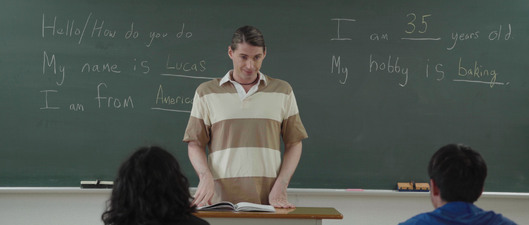
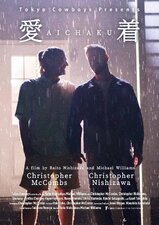




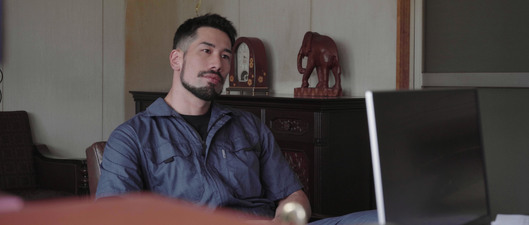
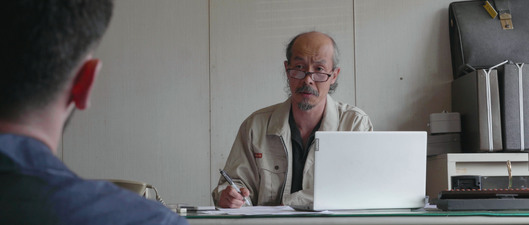
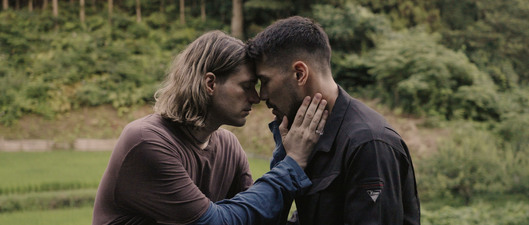
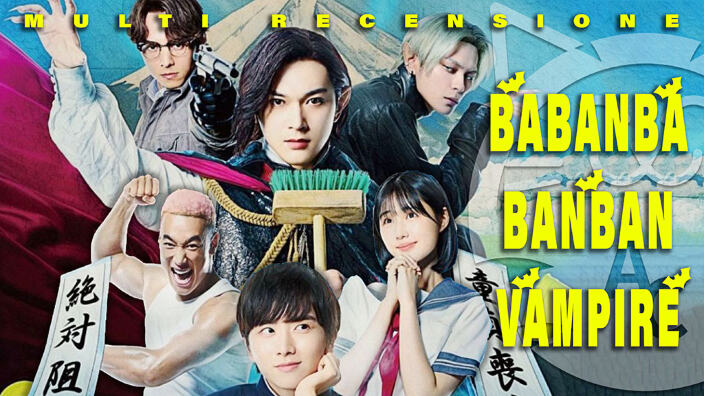

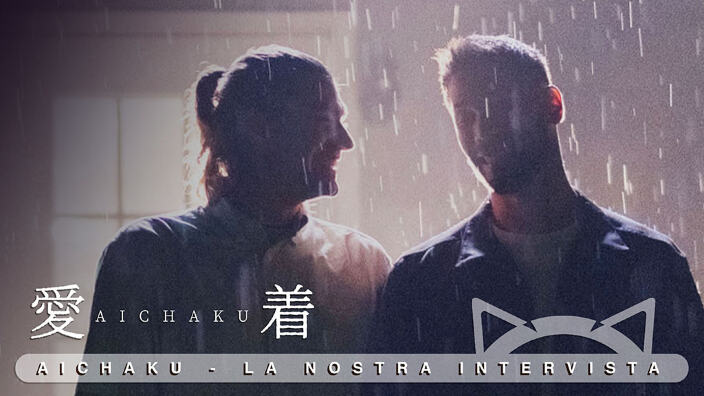
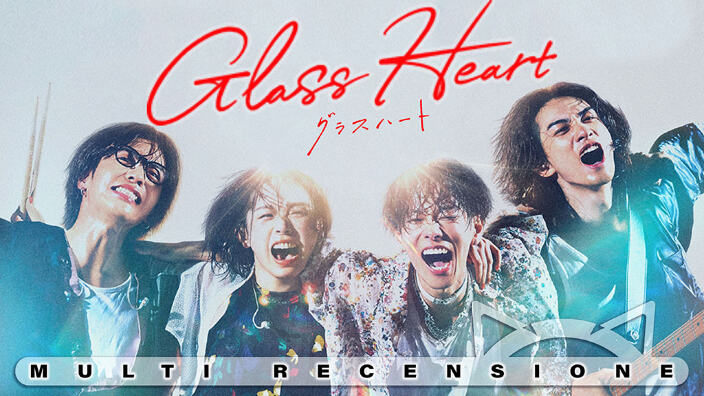
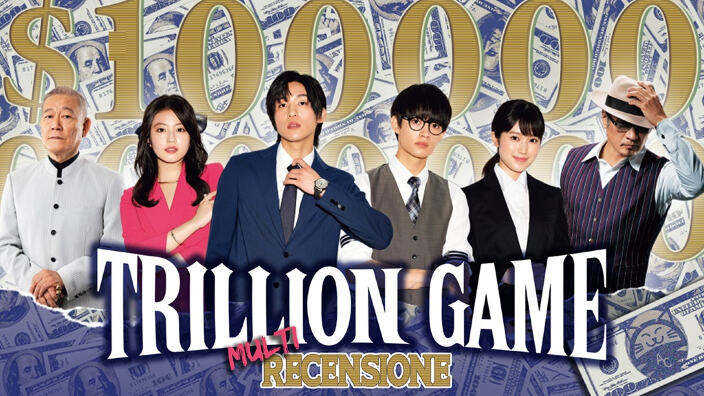
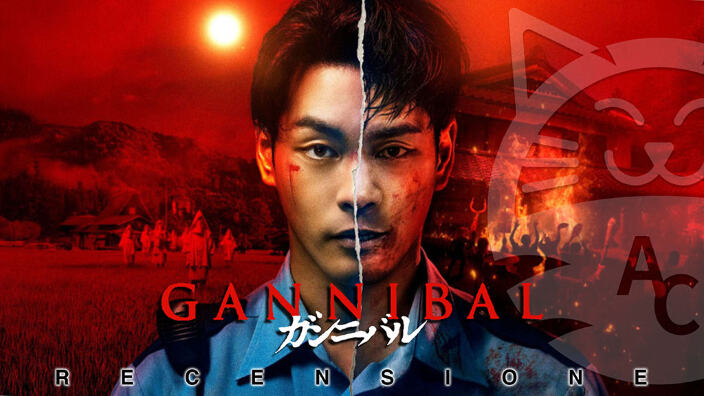
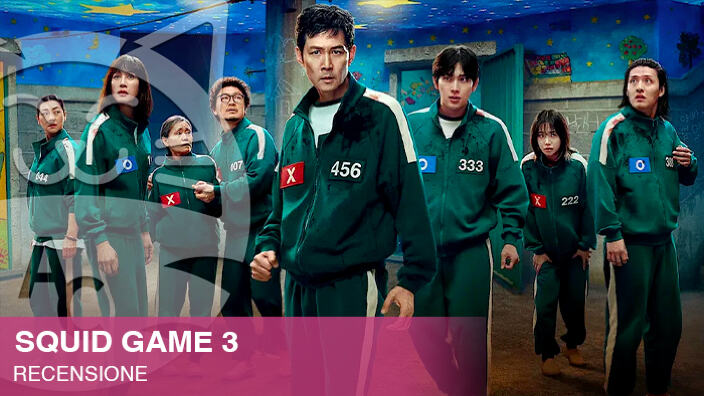

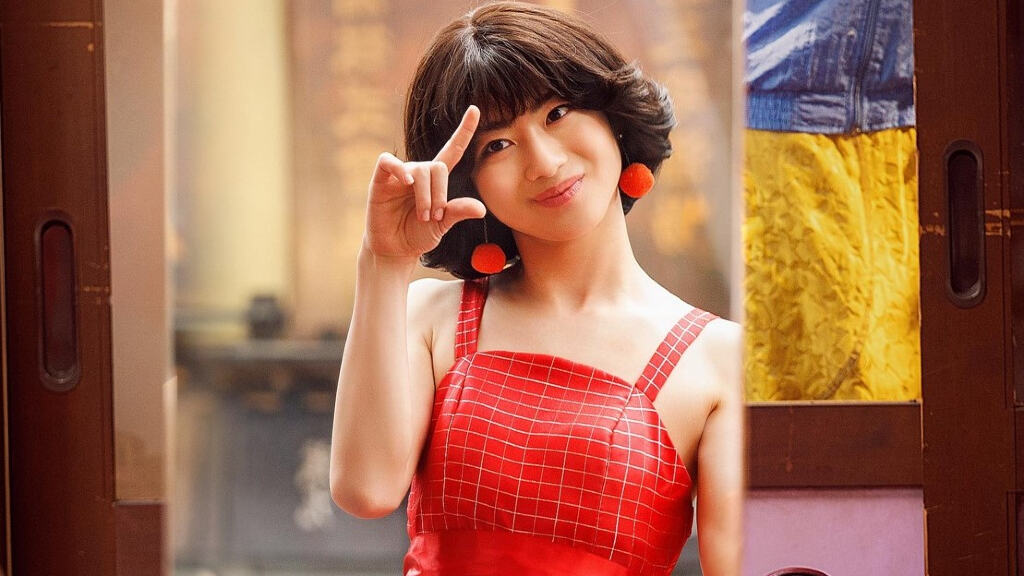
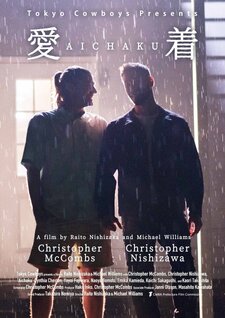
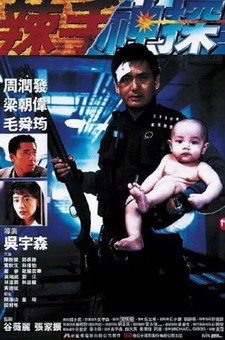

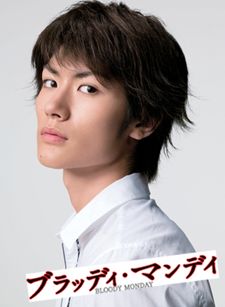
Devi eseguire l'accesso per lasciare un commento.